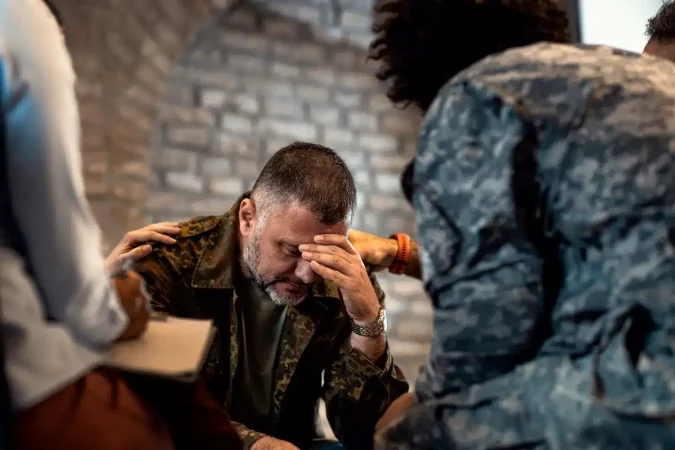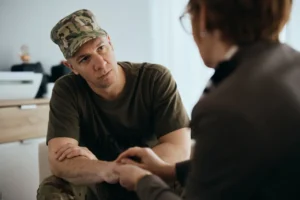Returning from military service can bring a wave of challenges—some visible, many not. Among the most common and often misunderstood are mental health disorders like generalized anxiety disorder (GAD), panic disorder, and social anxiety disorder. These conditions can severely impact a veteran’s ability to navigate civilian life, maintain relationships, or manage daily stress. If you’re supporting a loved one who served and now struggles with severe anxiety, it’s crucial to understand both the mental health landscape and your role in the recovery process.
While post-traumatic stress disorder (PTSD) often dominates the conversation around veteran mental health, anxiety in its many forms can exist independently or alongside PTSD. Anxiety symptoms may emerge from traumatic events during deployment, active duty stress, or even the intense shift to post-service life. Veterans may face impairment in social, emotional, and occupational functioning—often suffering in silence. Your support, understanding, and proactive engagement can play a life-changing role.
Recognizing the Symptoms of Severe Anxiety in Veterans
Understanding how anxiety symptoms present in veterans is the first step toward helping. These symptoms can be physical, emotional, or behavioral and may worsen over time if left unaddressed. Unlike common stress, anxiety becomes a problem when it interferes with daily life and quality of life.
Common signs include:
- Excessive worry about the future, health, safety, or responsibilities
- Panic attacks involving racing heart, dizziness, shortness of breath, and sweating
- Physical symptoms like headaches, muscle tension, fatigue, or gastrointestinal issues
- Avoidance of social situations, large crowds, or anything that feels unpredictable
- Outbursts of irritability or anger, especially in response to minor triggers
- Sleep disturbances, nightmares, or racing thoughts
- Difficulty concentrating or staying present
These symptoms may resemble those of other mental health conditions, such as PTSD, obsessive-compulsive disorder (OCD), or substance use disorder. In some cases, they may be linked to traumatic brain injury (TBI) sustained during active duty, making an accurate diagnosis even more important.
Understanding the Unique Stressors Veterans Face
Military culture often rewards stoicism and emotional suppression. For many service members, acknowledging mental distress can feel like weakness—an internal conflict that delays treatment and worsens symptoms. When these individuals transition back to civilian life, the loss of structure, camaraderie, and mission-based identity can be overwhelming.
Many veterans experience what is known as service-connected anxiety—emotional and psychological responses directly linked to traumatic events during service. These can include combat exposure, survivor’s guilt, or the strain of repeated deployments. According to the U.S. Department of Veterans Affairs (VA), anxiety is one of the most prevalent mental health challenges among veterans.
In addition to internal battles, veterans also face systemic stressors:
- Navigating complex va claims for VA disability
- Barriers to accessing timely and adequate mental health services
- Limited understanding from family members, employers, or peers
- Adjusting to a slower pace of life without the daily adrenaline of service
- Unresolved trauma from military sexual assault, loss of comrades, or moral injury
Understanding these layers can help caregivers and families offer deeper empathy and support.
Types of Anxiety Disorders Affecting Veterans
Veterans may experience several types of anxiety disorders, each with unique features and needs. Some of the most common include:
- Generalized Anxiety Disorder (GAD): Characterized by chronic, excessive worry that is difficult to control. GAD can make even basic decisions feel overwhelming and lead to physical strain.
- Panic Disorder: Involves recurring panic attacks, often without warning. These episodes can be terrifying and are sometimes mistaken for heart attack symptoms due to their intensity.
- Social Anxiety Disorder (Social Phobia): Veterans may feel extreme discomfort in social or unfamiliar settings, fearing embarrassment or judgment—especially if they’ve been isolated during service.
- Obsessive-Compulsive Disorder (OCD): Involves intrusive thoughts and repetitive behaviors, often rooted in the need for control or safety.
If anxiety is combined with depression, PTSD, or substance abuse, it may be part of a more complex substance use disorder or co-occurring diagnosis, requiring a multi-faceted treatment plan.
Treatment Options and Effective Therapies
There is hope. Today’s anxiety treatment landscape includes a wide range of evidence-based therapies that help veterans manage symptoms, reduce distress, and regain control of their lives.
One of the most effective tools for veterans is Cognitive Behavioral Therapy (CBT). CBT helps patients identify distorted thought patterns, challenge irrational beliefs, and develop practical coping strategies. It’s especially useful for those with GAD, panic disorder, and social anxiety.
For trauma-related anxiety, Trauma-Focused CBT and Prolonged Exposure Therapy may be beneficial. Veterans who experience panic attacks or flashbacks may also respond well to EMDR (Eye Movement Desensitization and Reprocessing), a treatment that helps reprocess disturbing memories in a safer, less distressing way.
Treatment may include:
- One-on-one talk therapy or group counseling
- Medication to manage mental health symptoms
- Holistic practices such as mindfulness, exercise, or meditation
- Support from vet centers, VA medical centers, or community-based clinics
- Access to support groups specifically for veterans and family members
Eligibility for VA healthcare may vary, so it’s worth reviewing gov resources or connecting with a health care provider for guidance.
How Loved Ones Can Support a Veteran With Anxiety
Supporting a veteran with severe anxiety requires patience, compassion, and consistency. While you can’t “fix” their condition, you can play a vital role in creating a safe and stable environment for healing.
Tips for family members and caregivers include:
- Educate yourself about mental illness, GAD, panic disorder, and related conditions
- Create a nonjudgmental space where your veteran feels heard, not pressured
- Avoid minimizing or dismissing symptoms of anxiety—what seems small to you may feel overwhelming to them
- Encourage—but don’t force—professional help; treatment should be collaborative
- Respect their need for structure or solitude, while gently inviting connection
- Stay informed about treatment options, VA eligibility, and local mental health services
Be mindful that setbacks happen, and emotional regulation may take time. Celebrate progress, however small, and reassure your veteran that they are not alone in the journey.
Crisis Support and Safety Planning
If your loved one is experiencing a mental health crisis, especially one involving suicidal thoughts, take action immediately. The Veterans Crisis Line is available 24/7 by calling 988 and pressing 1 or texting 838255. This service is confidential and free, offering help from trained responders—many of whom are veterans themselves.
Creating a safety plan together can also help prevent emergencies. This plan might include:
- Identifying triggers and early warning signs
- Listing coping tools or calming strategies
- Knowing who to call or where to go during a crisis
- Keeping emergency numbers and medical records easily accessible
Remember, severe anxiety can sometimes feel life-threatening to the person experiencing it—even if the external situation doesn’t seem dangerous. Compassion and swift support can save lives.
Getting the Right Help at Safe and Sound Treatment
If you or a loved one is navigating the overwhelming impact of anxiety following military service, know that professional support is available. At Safe and Sound Treatment, we specialize in helping veterans access effective treatments tailored to their specific mental health conditions, service history, and goals for well-being.
Our team understands the unique needs of veterans and their families, offering trauma-informed care that incorporates CBT, group therapy, medication management, and support groups—all within a respectful, structured environment. Whether you’re seeking inpatient stabilization or outpatient therapy, we offer personalized, compassionate care that empowers veterans to reclaim their peace of mind and quality of life.
Contact Safe and Sound Treatment today to learn more about our veteran-specific programs and how we can support your journey toward healing.


















